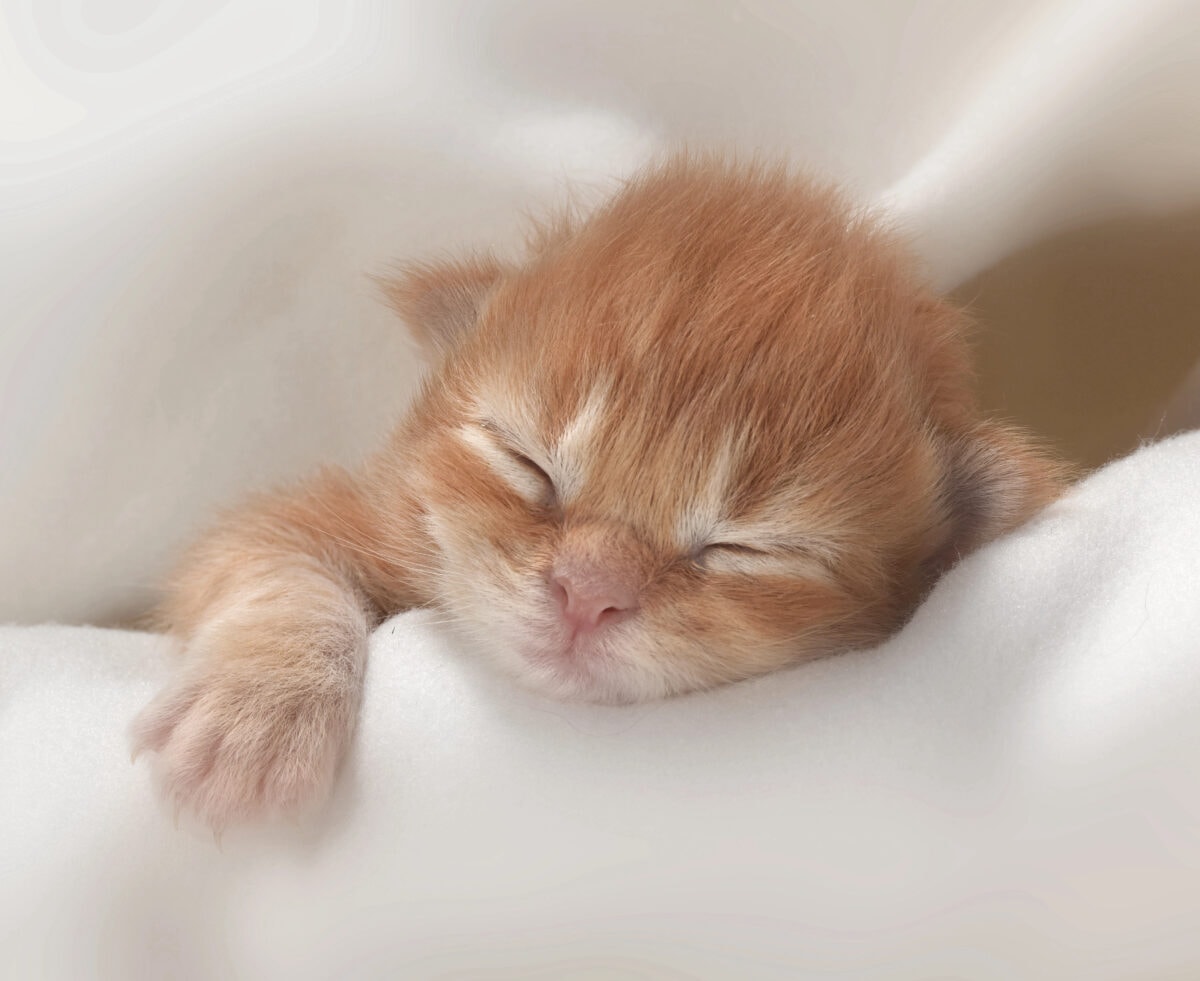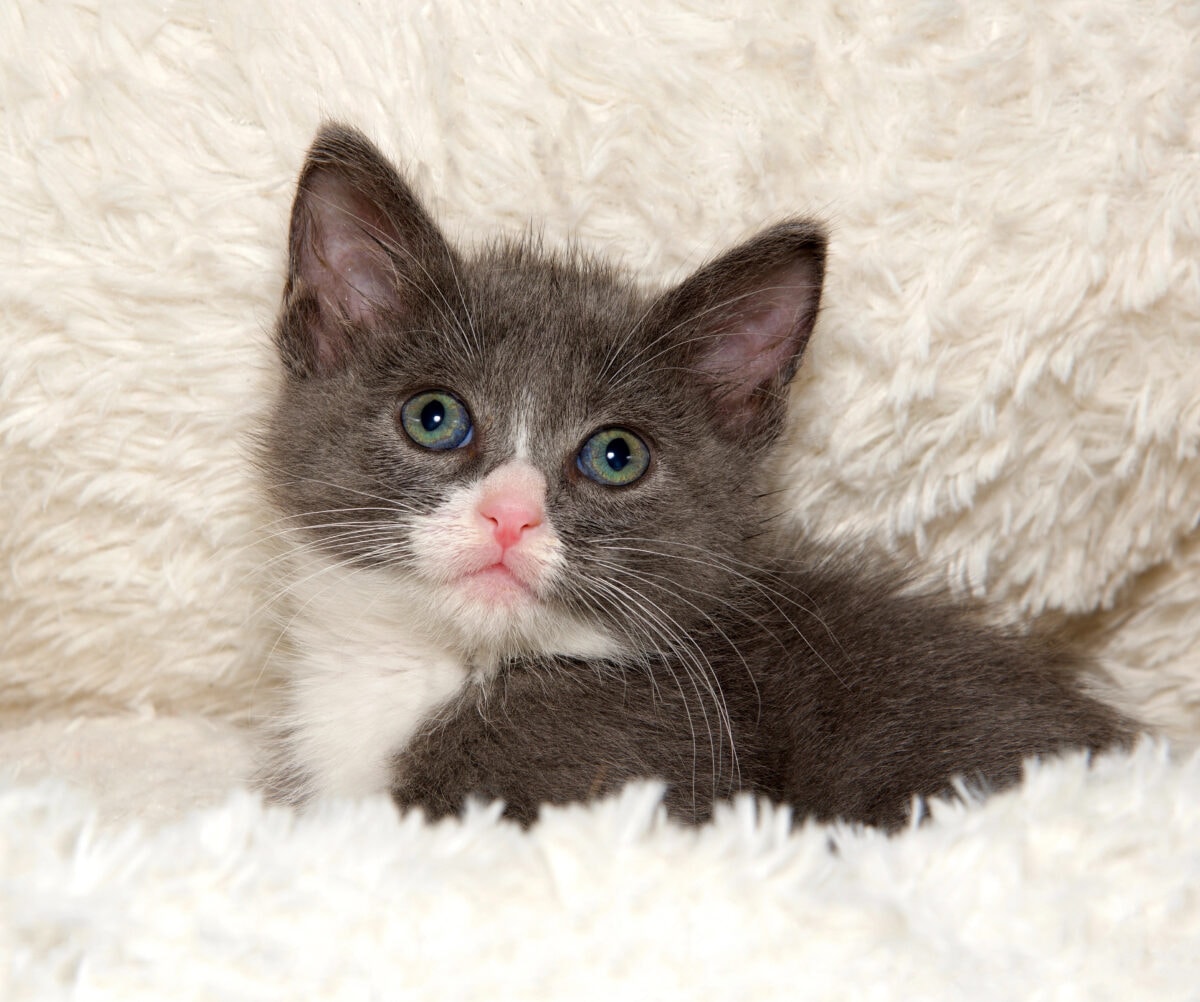Summary
Before bringing kittens home, it’s smart to have basic supplies for their care on hand. Check out our suggestions for basic supplies for kittens of any age and why they are important.
Basic Kitten Care Supplies
There are basic supplies to have before you bring kittens home to avoid scrambling to find, for example, bedding or food at the last minute. The specific items will vary depending on the age of the kittens that you plan on caring for, and included here are general supplies needed for kittens no matter their age. For example, all kittens need food and litter/litter boxes, but these needs vary with the age of the kittens.
See the Supplies Needed for Bottle Kittens, Supplies Needed for Weaning Kittens, Supplies Needed for Weaned Kittens, Supplies Needed to Care for Pregnant and Nursing Queens, for detailed lists of supplies specific to the kittens’ age.
Basic Supplies for Kittens
- Full-sized cat carrier. The carrier will be used to transport kittens to and from medical appointments or even serve as a bed for the kittens. It should be big enough to hold all the kittens, even as they grow larger, and to be easily cleaned. A top-loading carrier is ideal as it is easiest to get kittens into and out of.
- Bedding and comfort items. Fleece or flannel fabric, pillowcases and sheets are best for kittens younger than four to five weeks of age. Kittens cannot retract their claws until several weeks old, and tiny claws can get caught in the loops of some fabrics like terry cloth towels. A small, washable stuffed animal that does not contain dangerous fillings, buttons and other items that could be swallowed can provide comfort for orphaned kittens.
- Heat source. Kittens, especially those under four weeks of age who cannot regulate their body temperature, must be kept warm at all times. If you live in a cold home (drafty in the winter, very air-conditioned in the summer), an external heat source for the kittens is necessary. (Examine the kitten room as well for drafty spots (under AC vents, a window that “leaks” cold air in the winter) and do not put the kittens’ nests and bedding in those spots.) Good heat sources include those that can be warmed in a microwave oven (e.g., a SnuggleSafe® or similar product, a traditional hot water bottle, a sock filled with uncooked rice, a pet-safe warming/heating pad that does not turn off automatically). In all cases, ensure the heat source is covered by a non-looped towel or blanket to prevent direct contact between the heat source and the kittens. Kittens have thin skin and little body fat, and, if they sit or lie directly on a heat source, they can be burned or overheated. Also be sure there is space for the kittens to move off of and away from the heating source if they get too warm. Never put a heating source in, on or under the entire kitten area. They must be able to move to and away from the heat.
- Food/water bowls. Have several sizes and types of material. Stainless steel or ceramic bowls are best. Be sure ceramic dishes are free from chips or cracks which can harbor bacteria even after washing. Similarly do not use plastic dishes which can have microscopic scratches that can harbor bacteria. Paper bowls are an option for reducing the amount of washing needed for other bowls.
Kittens weaning age or older must also have access to clean, fresh water. - Food. The food will depend on the age and health status of the kittens being cared for. It is a good idea to have several foods stocked so that you will have some on hand no matter what the kitten needs. For example, have at least a day or two’s worth of kitten milk replacer (powder or liquid), wet kitten food (preferably a smooth/pate texture that can be used for syringe feeding if needed), and small-piece dry kibble. It may also be helpful to have a nutritional supplement/replacer formula like Nutri-Cal® or Rebound®.
- Scale and record-keeping chart. Monitoring kittens’ weight daily, preferably at the same time of day is crucial. Use a digital scale that measures weight in grams as well as pounds and ounces and that has a “tare” function. For smaller or squirmy kittens, have a bowl, basket or small box you put on the scale. Use the tare function to zero out the weight of the container, then put individual kittens in the container to get their weight.
A piece of paper and a pen may be the easiest way to keep track of daily weight and to easily see if the kitten is gaining weight. Kittens should gain weight every day! Weighing kittens daily with an accurate scale and then recording their daily weight in a written record is a MUST. Also record any other changes or concerns that you notice; for example, in behavior (e.g., energy level), in stool color or consistency (diarrhea), vomiting (food, liquid, parasites). - Open, low-sided litter boxes with non-clumping, unscented litter and litter scoop. It’s necessary to use NON-clumping litter as clumping litter can be dangerous to young kittens who swallow it.
- Cleaning supplies. Gentle soap or detergent, mild dishwashing liquid (e.g., original formula blue Dawn), disinfectant (e.g., Rescue®), non-alcohol, unscented baby wipes, urine and feces odor neutralizer, cotton swabs, toilet paper, paper towels or washcloths, a dustpan and hand brush/broom; small vacuum.
- Contacts list/foster manual. If fostering through an animal shelter or rescue organization, they should provide a list of emergency and non-emergency contacts. Keep this list handy. Some organizations require you to contact them for approval before taking kittens for veterinary care. Know their procedures and follow their rules.
If caring for kittens independently, have a veterinarian’s and an emergency animal clinic’s contact information handy. Young kittens with medical problems may need to be seen very quickly, even within hours of first noticing a problem. Having this information will prevent scrambling for phone numbers and driving directions when time matters.
Other Kitten Care Supplies
Other items to have on hand include disposable gloves, a small-tipped, quick-read, digital rectal thermometer and lubricant for the thermometer, nail trimmer, flea comb, and grooming supplies. We offer some specific tips on choosing a rectal thermometer. Also, have some Karo® syrup (not the lite product) or Nutri-Cal® for a lethargic kitten that may be hypoglycemic (low glucose level).
Note: The costs of supplies needed to care for kittens may be tax deductible if you are fostering for a nonprofit organization. Keep receipts and consult your tax advisor!


